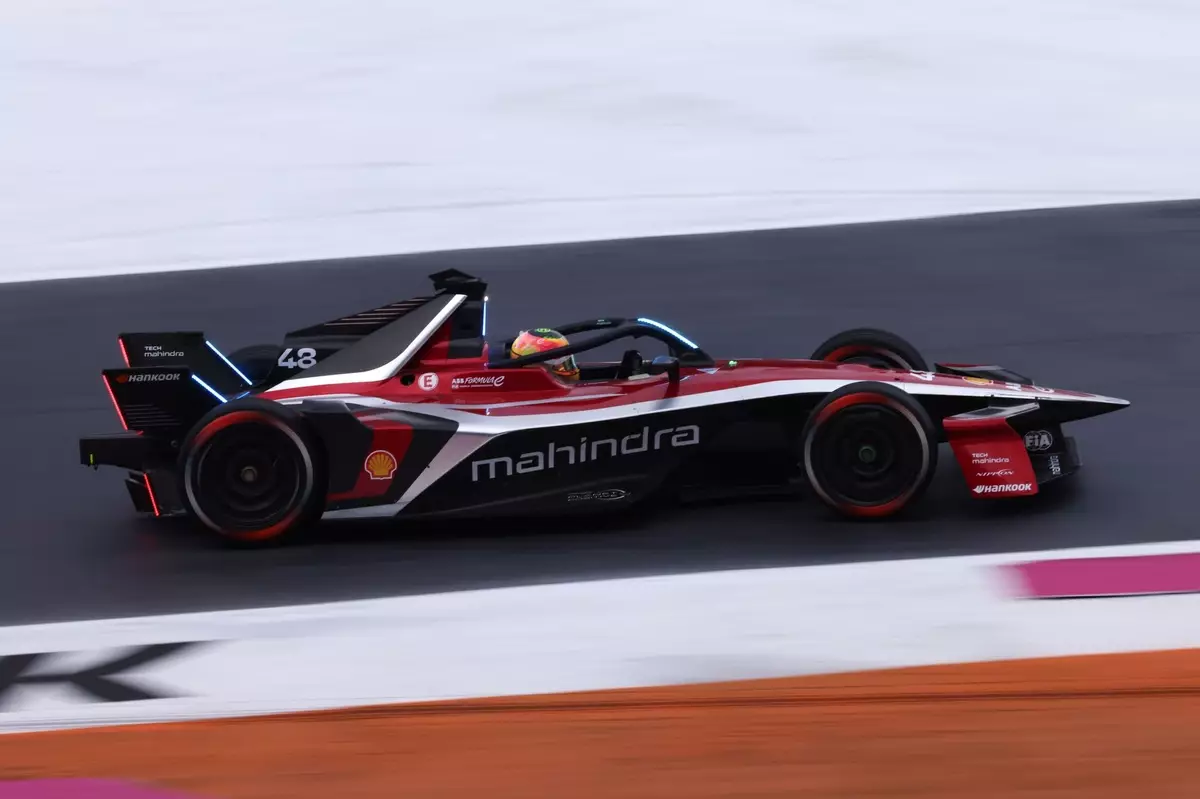Mahindra Racing has been a pioneering force in the all-electric racing series, Formula E, since its inception in 2014. As the racing world evolves rapidly and new manufacturers jump on board, Mahindra finds itself at a crossroads regarding its participation in the next phase of the championship: the Gen4 regulations set to launch in the 2026-27 season. Team principal Fred Bertrand recently reaffirmed the team’s ongoing commitment to Formula E, amidst the backdrop of industry changes and the strategic decision of whether to continue as a manufacturer or transition to being a customer team.
The success of Mahindra in the Formula E sphere cannot be overlooked. With five victories under its belt and a high note of finishing third in the 2015-2016 team standings, the team has undeniably made its mark. However, as other manufacturers such as Nissan, Jaguar, Porsche, Maserati, and Lola formally align themselves with Gen4 regulations, Mahindra’s decision-making appears increasingly complex. Bertrand’s insistence on the commitment toward the series suggests that they are deeply engaged in the decision-making process, but also highlights the ramifications of entering a new regulatory framework that comes with its own set of challenges.
In the dialogue surrounding Mahindra’s future, the distinction between participating as a manufacturer versus a customer team is crucial. The dynamics of racing series have evolved, and this vital decision could define the team’s operational and competitive landscape moving forward. Bertrand has suggested that while Mahindra aims to remain as a manufacturer, thorough evaluations are needed regarding various operational and technical aspects before a definitive decision is made.
The need for evaluation goes beyond mere participation; it delves into aspects such as technological investments, partnership dynamics, and competitive viability. Bertrand emphasized that Mahindra has the luxury of time to strategize effectively, indicating that although a decision is pending, they are carefully scrutinizing all options available to them.
Deadline Dilemmas and Continued Discussions
Some might see delays as a red flag, especially given that Mahindra missed the FIA’s 31 December deadline concerning the Gen4 manufacturer entries. However, ongoing discussions suggest that the FIA remains open to Mahindra’s involvement, likely owing to its status as a founding member of Formula E. This flexibility reflects a nuanced understanding within the FIA about fostering a competitive and innovative environment that benefits the sport as a whole.
Bertrand’s assertion that potentially entering the championship later should not preclude any team from participating echoes a larger issue within motorsport regulations: the balance between setting regulations to aid development and remaining adaptable to new entrants who may have the readiness to compete. This sentiment hints at a broader flexibility that could allow for emerging manufacturers like Hyundai, which has been contemplating entry into the Gen4 era despite its prior commitments elsewhere.
As Mahindra navigates this transitional phase, opportunities for innovation and partnership abound. The discussions surrounding Gen4 regulations not only reflect the evolution of Formula E but also underscore a changing landscape in motorsport, where sustainability and electrification are paramount. Mahindra’s extensive experience in this domain positions it as a key player capable of contributing to the championship’s growth.
Nonetheless, the challenges are significant. The need to balance competitiveness with the realities of investment and technological advancement looms large. The decision to either fortify its position as a manufacturer or adopt a different strategy will require not just financial considerations but a profound understanding of where the sport is headed in the next few years.
Mahindra Racing stands at a pivotal juncture. The message from team principal Fred Bertrand that commitment remains strong is encouraging, but the organization’s ability to adapt to changing industry dynamics will be critical in determining its longevity and relevance in Formula E as it embraces the next generation of electric racing. The framework they choose to engage with will significantly impact their competitiveness, sustainability, and strategic horizon.


Leave a Reply